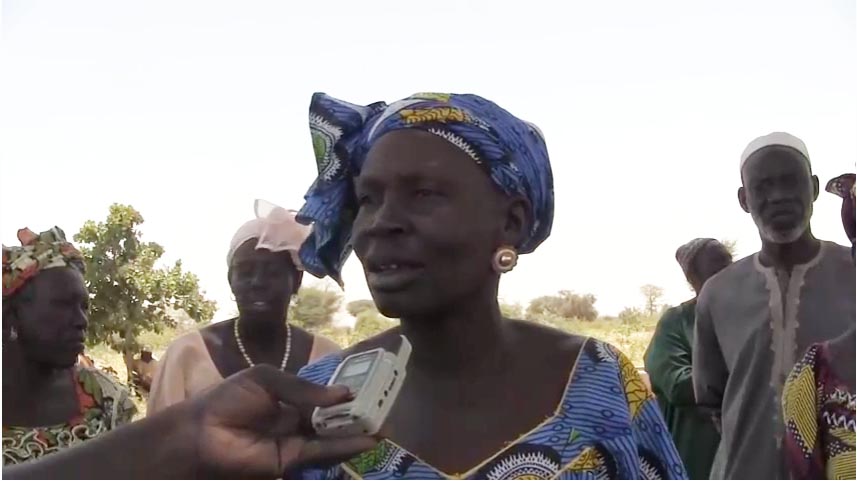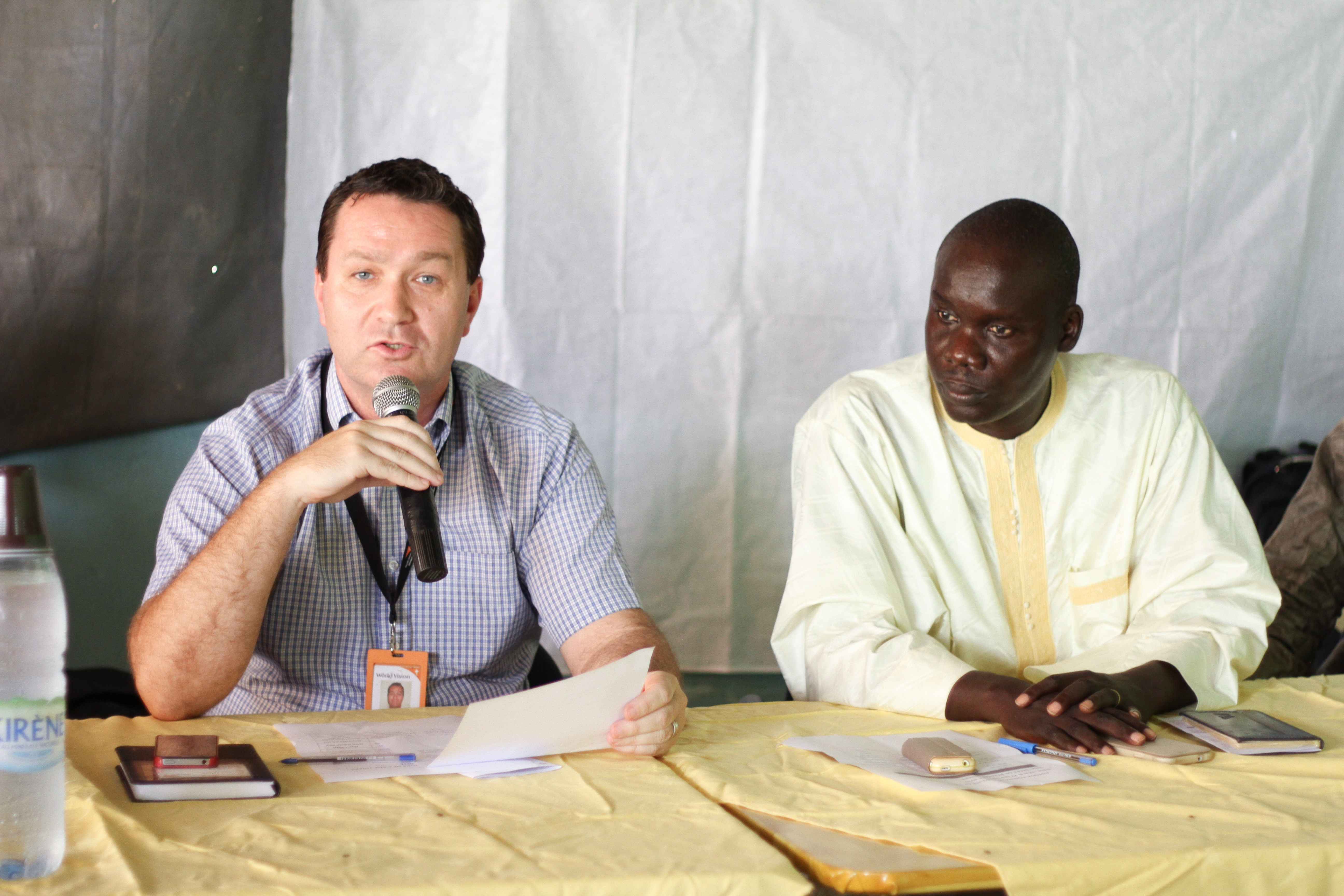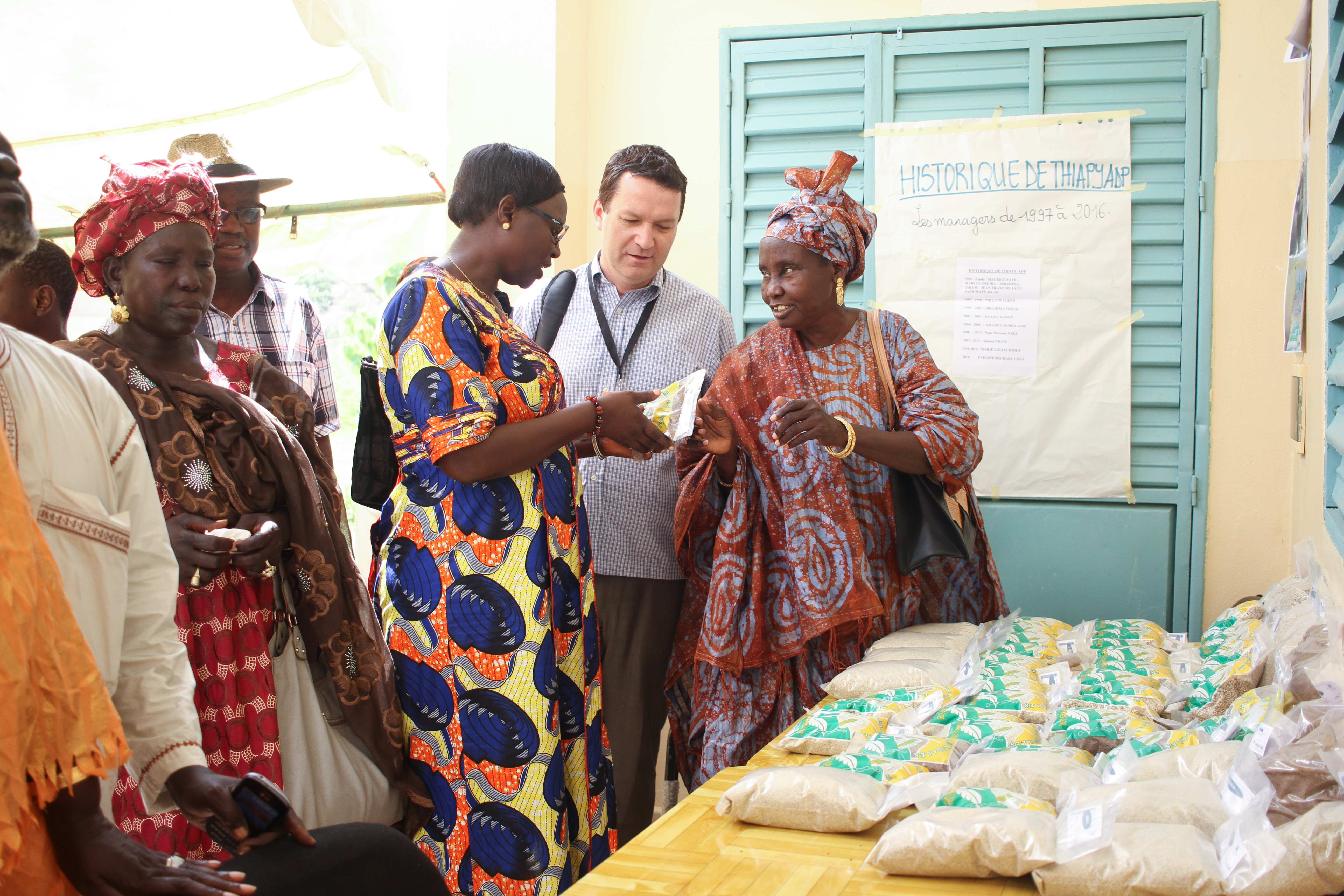After 20 Successful Years, the Thiapy Program’s Life Cycle Closes
“With the help of World Vision Senegal’s Health program, women in Mbambey are now well informed about nutrition and the care of malnourished children. They know how to deal with it, and as a result we no longer have any cases of malnutrition here,” Mbambey’s healthcare case manager Khady Diouf states.
Such is the deep impact that World Vision Senegal’s “Thiapy” program has made in the communities of Réfane and Ngogom, where malnutrition has considerably been reduced from 27% of affected children in 2003 to 2% in 2016.
World Vision launched this program in 1996 in 65 villages with a combined population of nearly 60,000 residents. At the time, Réfane and Ngogom suffered from poverty and extreme vulnerability. Only 22% of the population had access to drinking water, and fewer people still could benefit from healthcare services, given there was only one nurse per 9,600 residents. Access to education was also very limited, with a school attendance rate of only 24% in Réfane and 45% in Ngogom.
As Seynabou Faye points out, this program has been instrumental in the dynamic development of the village of Combelane: “World Vision’s guidance transformed our area. For instance, thanks to market gardens, we now yield better incomes, which enables us to take care of the needs of our children as well as our own.”
And today, 100% of households in the area have access to drinking water thanks to the combined efforts of various partners – the Government of Senegal, local initiatives, the German Corporation for International Collaboration, the Borehole Users’ Association, and others…
During the program’s closing day ceremony, Dr. Andrew Catford, National Director of World Vision Senegal, emphasizes the major progress the population has benefitted from over the years of its course. “Looking back on this time, it is just amazing to see what a long way we have come since: the vaccination rate of children has gone up from 15% to almost 100% today, the rate of underweight children has been reduced from 55% to practically zero, access to drinking water has increased from 35% of households to almost 100%, nearly every young person now has the opportunity to learn a trade as opposed to only 63% before, and a substantial number of households now have several sources of income.”
Proven results in various fields of intervention
All sectors concerned have shown substantial improvement, such as, for instance, education. Awareness campaigns, the creation of relevant infrastructure, availability of equipment for schools, and teacher training have all jointly contributed to raise school attendance rate from 45% in 1997 to 81% in 2012 in Ngogom. Girls’ school attendance rate has followed this trend, with a 63% increase in enrollment between 2004 and 2012.
“Thanks to the child sponsoring program, my son Latir’s education is now entirely taken care of, and this has a strong influence on the results he obtains at school,” Mamadour Ngom, father of a sponsored child, confirms.
As far as microfinance is concerned, the partnership with Senegal Microfinance (SEMFIN) has allowed financing the activities of more than 3,000 micro-entrepreneurs (75% of which are women), amounting to a total of over US$1.53m (= CFA760m) between 2008 and 2016. According to statements of the women concerned, the revenues yielded from their activities contribute substantially to their children and families’ increased welfare, allowing them in particular to take care of costs related to education and health.
Closing Day Celebration
20 years after kickoff and implementation, World Vision has closed its Thiapy program this past September – 20 years of major accomplishments in collaboration with the Government, World Vision Canada, local initiatives and various local partners. An opportunity not only to jointly look back on the work that has been done and the results achieved from it, but also to celebrate the long-term impact the program has going forward, and the willingness of the population to participate in it.
The closure is the finish line of a program’s natural course, a circle closing when a mission has been accomplished and its results prove that a real positive impact has been made on the living conditions of children and families.
World Vision is committed to continuing its work in other underprivileged regions of Senegal with the goal to improve the lives of 8 million children in the country, notably the most vulnerable ones, by 2021.
Photos Credit : Delphine Rouiller (1, 2, 3, 7) et Alexandre Gassama (4, 5, 6, 8)
Nutrition awareness session in Mbambey Health Centre
Exposure visit at closing forum


